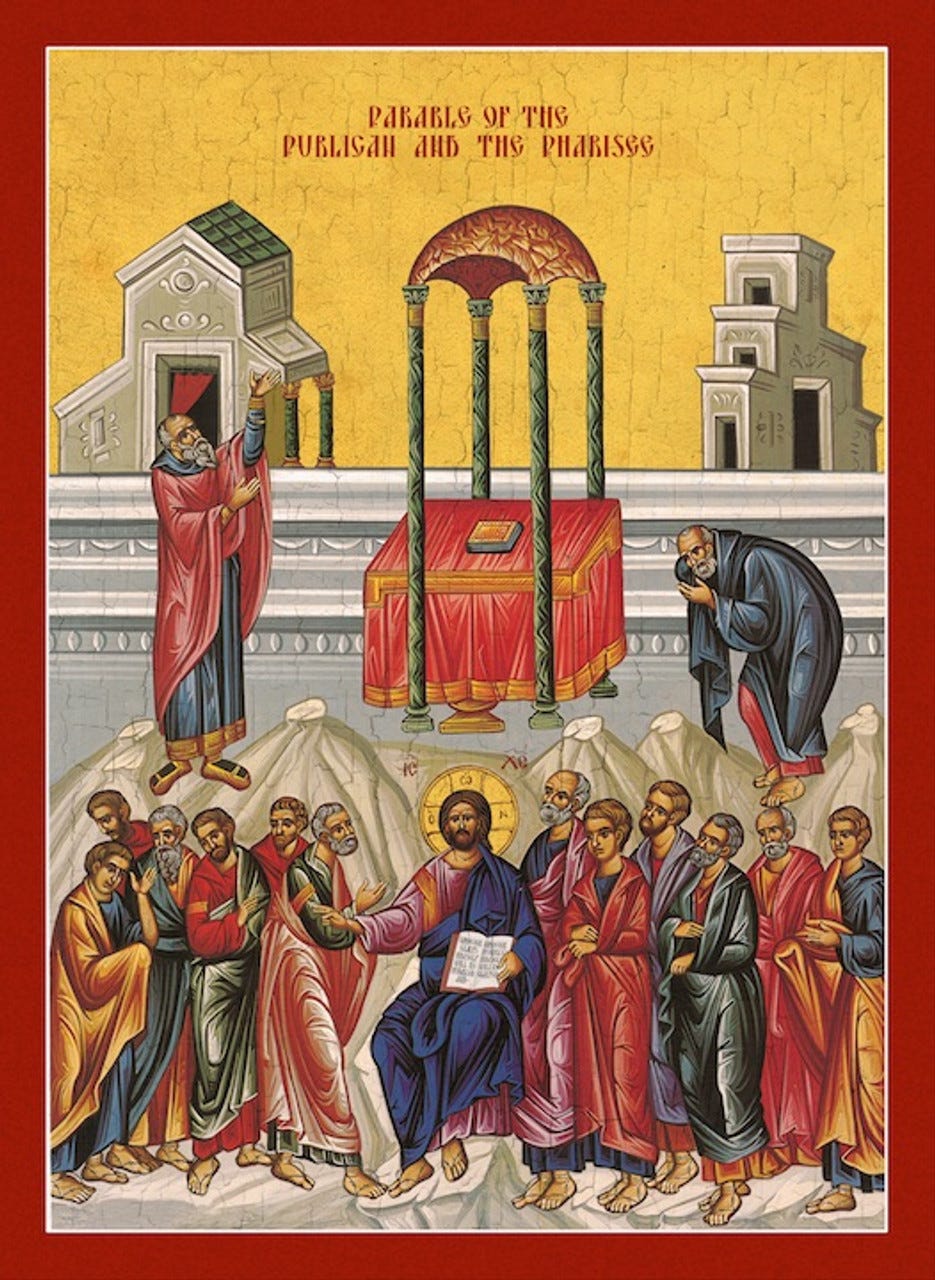In today’s readings St Paul reminds Timothy that the Christian life is not easy. We can’t run from the cross; it is better to embrace it. Righteousness is not always rewarded with material goods in this life. Our reward is in heaven, and we must keep our eyes on the prize, in good times and in bad, in sickness and in health, in suffering and in joy. Are we faithful to Our Lord if we love Him only in good times, but despise Him in times of trial?
In reference to the gospel reading about the Publican and the Pharisee, St John Chrysostom likens striving for salvation to a chariot race. By nature, the chariot of righteousness is swifter than the chariot of sinfulness, but in the case of these two characters, the pride of the Pharisee acts as a dead weight on the chariot of righteousness, while the humility of the Publican acts as a “booster” on the chariot of sinfulness, and in this race, humility is the deciding factor.
Obviously, a life of righteous deeds performed with true humility is the best course of action and a life of sin and pride is the worst course of action, but let’s look at this dynamic more closely. Pride is when we ascribe something good to ourselves instead of acknowledging that, without God’s grace, we can do nothing good. In this sense, pride is a denial of God. St Luke says that the Pharisee stood and prayed “with himself,” meaning that in his pride the Pharisee was not talking to God but to himself. In order for our prayers to be fruitful and actually communicate with God, we must pray in a spirit of humility, recognizing our lowliness before Him.
The Pharisee is proud for two reasons. 1) He thinks he has made himself righteous without God’s help, and 2) he believes he is better than everyone else and thus despises everyone else. But St Gregory reminds us that there are other way for us to be proud beyond just these two: a) We could believe that our righteousness comes from God, but that we grew in it because of our own merits, b) or we might think that we are righteous when, in fact we’re not, c) or in despising another for a particular vice he has, we might think that we are the only one who has the opposite virtue.
Notice that pride is often linked to condemning our neighbor. When we talk badly about others, we hurt both ourselves, and those who hear us because in thinking badly of another both the speaker and the listeners not only fall into the sin of pride, thinking they are better than the one being condemned, but also the sin of calumny, which damages the reputation of the condemned. In this way all three parties are damaged, the Church suffers because it loses its dignity, the glory of God is diminished in us because we show ourselves unworthy of His favor, and we make ourselves liable to punishment.
Instead of praising ourselves and condemning others, let us then, like the Publican, ask God for his help and mercy. Let us approach Him with a penitent heart, recognizing our own sinfulness, and beg for His forgiveness. Let us focus our mind and heart on our prayers when we say them because the Church has given us the remedy for both pride and sin in our prayers. How many times do we ask for the Lord’s mercy without thinking about what we are saying? Are you brazen at home in condemning your neighbor, but silent in your heart before God in the holy temple? Let us strive to be humbly silent when we want to gossip at home, and humbly earnest when it’s time to pray. We can find consolation in humility and hope for the day of judgement. Amen.



